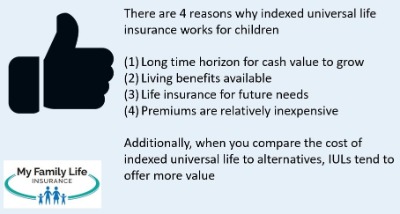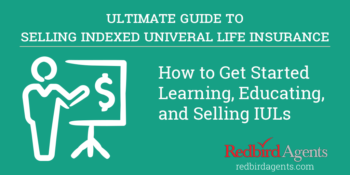All Categories
Featured
Table of Contents
Do they compare the IUL to something like the Vanguard Total Stock Market Fund Admiral Shares with no tons, a cost ratio (ER) of 5 basis factors, a turn over proportion of 4.3%, and a phenomenal tax-efficient document of circulations? No, they compare it to some horrible proactively managed fund with an 8% lots, a 2% EMERGENCY ROOM, an 80% turnover proportion, and a dreadful document of temporary funding gain distributions.
Shared funds frequently make yearly taxed circulations to fund proprietors, also when the value of their fund has gone down in value. Mutual funds not just require earnings coverage (and the resulting annual taxation) when the mutual fund is increasing in worth, but can also impose revenue taxes in a year when the fund has dropped in worth.
That's not exactly how shared funds function. You can tax-manage the fund, gathering losses and gains in order to lessen taxable circulations to the investors, but that isn't somehow going to alter the reported return of the fund. Just Bernie Madoff types can do that. IULs avoid myriad tax obligation traps. The possession of mutual funds might require the mutual fund owner to pay estimated taxes.

IULs are easy to place to make sure that, at the proprietor's fatality, the recipient is exempt to either revenue or estate taxes. The same tax reduction techniques do not work nearly also with shared funds. There are numerous, frequently pricey, tax obligation catches related to the timed purchasing and marketing of common fund shares, traps that do not apply to indexed life Insurance coverage.
Possibilities aren't really high that you're going to undergo the AMT because of your mutual fund circulations if you aren't without them. The rest of this one is half-truths at finest. For example, while it holds true that there is no income tax because of your successors when they inherit the profits of your IUL policy, it is likewise true that there is no earnings tax obligation because of your successors when they inherit a mutual fund in a taxed account from you.
Flexible Premium Life
There are better means to prevent estate tax obligation concerns than purchasing financial investments with low returns. Common funds may trigger earnings taxes of Social Security advantages.

The growth within the IUL is tax-deferred and may be taken as free of tax revenue via lendings. The plan proprietor (vs. the shared fund manager) is in control of his or her reportable revenue, hence allowing them to minimize or also eliminate the taxation of their Social Safety benefits. This one is wonderful.
Below's another marginal issue. It's real if you buy a mutual fund for say $10 per share prior to the circulation day, and it disperses a $0.50 circulation, you are then mosting likely to owe tax obligations (probably 7-10 cents per share) in spite of the reality that you have not yet had any gains.
However in the long run, it's truly about the after-tax return, not just how much you pay in tax obligations. You are going to pay even more in tax obligations by making use of a taxable account than if you acquire life insurance policy. You're also most likely going to have even more cash after paying those taxes. The record-keeping needs for possessing common funds are considerably a lot more complicated.
With an IUL, one's documents are maintained by the insurance policy firm, duplicates of yearly declarations are sent by mail to the proprietor, and distributions (if any type of) are amounted to and reported at year end. This one is likewise sort of silly. Certainly you need to maintain your tax obligation documents in case of an audit.
How Much Does Universal Life Insurance Cost
Barely a factor to acquire life insurance coverage. Common funds are commonly part of a decedent's probated estate.
Furthermore, they go through the delays and expenditures of probate. The profits of the IUL plan, on the other hand, is constantly a non-probate distribution that passes beyond probate directly to one's called recipients, and is therefore not subject to one's posthumous lenders, undesirable public disclosure, or similar hold-ups and prices.
We covered this under # 7, yet just to evaluate, if you have a taxed shared fund account, you must place it in a revocable count on (and even much easier, make use of the Transfer on Death designation) to avoid probate. Medicaid incompetency and life time revenue. An IUL can supply their proprietors with a stream of earnings for their whole lifetime, no matter how lengthy they live.

This is useful when organizing one's events, and converting possessions to income prior to an assisted living home arrest. Common funds can not be transformed in a comparable fashion, and are generally taken into consideration countable Medicaid properties. This is another silly one promoting that bad people (you know, the ones who need Medicaid, a government program for the bad, to pay for their assisted living home) need to utilize IUL rather of mutual funds.
Universal Life Insurance Company Ratings
And life insurance policy looks horrible when compared rather versus a retirement account. Second, individuals that have money to acquire IUL above and past their retirement accounts are mosting likely to need to be dreadful at handling money in order to ever receive Medicaid to spend for their assisted living home expenses.
Persistent and incurable disease cyclist. All plans will permit a proprietor's easy access to money from their policy, frequently waiving any type of abandonment fines when such people experience a severe disease, require at-home care, or end up being restricted to a retirement home. Mutual funds do not offer a comparable waiver when contingent deferred sales fees still put on a common fund account whose proprietor needs to market some shares to money the prices of such a remain.
Group Universal Life Insurance
You get to pay even more for that advantage (motorcyclist) with an insurance policy. Indexed universal life insurance policy provides fatality advantages to the beneficiaries of the IUL proprietors, and neither the owner neither the recipient can ever lose money due to a down market.
Currently, ask yourself, do you in fact require or desire a death advantage? I certainly do not require one after I get to financial freedom. Do I want one? I intend if it were economical enough. Certainly, it isn't cheap. Usually, a purchaser of life insurance policy spends for truth price of the life insurance policy benefit, plus the expenses of the policy, plus the profits of the insurance coverage business.
Universal Life Insurance For Business Owners
I'm not entirely sure why Mr. Morais tossed in the entire "you can't lose money" again right here as it was covered quite well in # 1. He simply intended to repeat the very best marketing point for these points I suppose. Again, you do not shed small bucks, but you can shed real bucks, as well as face severe possibility expense as a result of low returns.

An indexed global life insurance policy owner may trade their policy for an entirely various policy without causing revenue taxes. A mutual fund owner can not move funds from one shared fund business to an additional without marketing his shares at the former (hence activating a taxed occasion), and redeeming brand-new shares at the last, commonly subject to sales charges at both.
While it is true that you can trade one insurance coverage for another, the factor that individuals do this is that the very first one is such a terrible policy that also after purchasing a brand-new one and going with the early, unfavorable return years, you'll still appear in advance. If they were marketed the best policy the very first time, they shouldn't have any desire to ever before trade it and undergo the early, negative return years again.
Latest Posts
Best Guaranteed Universal Life Insurance Companies
Universal Life Insurance Vs Term Life
Universal Life Insurance Questions